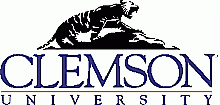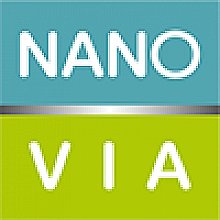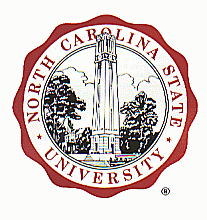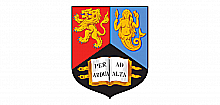The follow-up master's degree program is designed by the definition of Bioengineering, which is generally an engineering discipline based on knowledge of scientific disciplines. The study program educates students to solve bioengineering problems in the production, development, and testing of new biomaterials designed and manufactured for interaction with biological systems. The study aims to provide a deep understanding of the professional issues, enabling students to utilize the knowledge and skills obtained, including the ethical context of modern bioengineering practices. We are offering opportunities for cooperation with foreign institutions during the study. You will study in a pleasant and modern environment of the Technical University of Liberec. You will have many opportunities to participate in events not only at the Bioengineering division of the Department of Chemistry, FP TUL. We are a workplace that gained nationwide renown during the corona crisis in the field of development, testing and production of non-pharmaceutical protective equipment against respiratory diseases. If you are a student with the soul of an engineer, researcher or scientist who likes new knowledge, join us, please! | Do you want to be an engineer who knows the natural sciences? Wanna design the preparation of biological and nanofibrous materials and test them for medical and biological applications? Are you interested in the nature of the production of these materials? Gonna study properties of macromolecules that form the basis of life? Do you want to work in a Tissue engineering lab? |
What will you learn?
Under the leadership of a well-established team of academicians who are at the same time passionate researchers, we will teach you how to design, manufacture and test biomaterials and how to look at their development and application with an insightful but critical view following ethical principles. By studying, you will gain valuable scientific and engineering education and laboratory skills and experience for laboratory work in private companies or academic, scientific, and research institutions focused on materials research and development associated with applications in medicine. You will also continue in the follow-up doctoral study and fully participate in scientific research projects and other activities of the Bioengineering Division of the Department of Chemistry, Faculty of Science-Humanities and Education, Technical University of Liberec. Last but not least, you will delve into the secrets of modern technology and laboratory tests. As part of laboratory exercises, for example, you will become experts in tissue engineering. The study also includes advanced modern techniques for the creation of nanomaterials and molecular biology, including DNA isolation and its analysis by PCR or isolation of specific proteins.
We will teach you to value your education and humbly approach the solution of bioengineering problems. You will appreciate our individual approach to students.prof. David Lukáš
Your future job positions?
Graduates of the follow-up master's degree program in bioengineering will work as a production and operational engineers and technologists, employees of control laboratories and testing laboratories in the medical and pharmaceutical industries. In particular, they can be employed in research and academic workplaces dealing with the development of biomaterials and materials for medical devices. The independent principal investigator is heading a small team to conduct innovative research in any area of the life sciences. In particular, they are well prepared for application in materials research and management of modern operational technologies in various industries related to biological materials and materials intended for medical applications. Graduates are also widely employed in state health authorities (e.g., the State Institute for Drug Control, FDA, EMA etc.). Thus, the possibilities of application are by no means limited to the Czech Republic or Europe.
Examples of employment of graduates of the follow-up study program bioengineering in the European Union countries are available at https://jobs.sciencecareers.org/.
We assume that graduates will also continue to study at doctoral study programs at the Technical University of Liberec or in a wide range of doctoral study programs in applied physics, chemistry, biology and materials engineering at domestic foreign universities.
I chose the study of Bioengineering for its interest and uniqueness. I was pleasantly surprised by the individual approach created by teachers of subjects directly related to bioengineering. Already in the first semester I had the opportunity to see, create and explore materials for biological applications. And that's why Bioengineering has grown to my heart.Eliška Bergmanová, student
Admission procedure 2021/2022
Entrance examination: yes
Conditions for admission procedure: The admission to the study is conditioned by the previous completion of the bachelor's study in the fields of biology, ecology, pharmacy, physics, chemistry, mathematics, engineering and technology and materials. Bachelors from medical disciplines are also welcome. Those applicants will be accepted without any entrance examination, who meet the condition of the average grade in the entire bachelor's study up to 2.0. The same rule holds for those or who will receive an average grade from the defence and professional discussion of up to 2.0 in the bachelor state final examination. The condition for applicants with a worse than the above-mentioned grade achievement is an entrance examination in the form of a written test of knowledge related to the basics of bioengineering.
Deadline for applications: April 30, 2021
Detailed information on the admission procedure is posted at the Official desk.
Follow-up study programs at FP
The follow-up master's study program bioengineering is also intended to prepare the graduate for doctoral studies. In particular, these are doctoral study programs at the Technical University of Liberec: Applied Sciences in Engineering or Scientific Engineering, whose accreditation documents have been submitted for approval at the beginning of 2021. The graduate can also continue in a wide range of doctoral study programs in applied physics, chemistry, biology and materials engineering at other domestic or foreign universities.
Additional study obligations
Part of the study is a compulsory professional practice, which students choose in one of the cooperating companies, ex-institutional institutions or other universities outside the TUL. In rare cases, internships are also performed in other companies. The length of the internship is at least 240 hours. The internship can be completed continuously or in parts. The internship can take place in a single or in a number of different institutions. The conclusion is conditioned by the submission of the Crrava from the internship, in which the student describes the course of the internship, the achieved results and benefits. The administration will be supplemented by an authorized person from the company who supervised the practice.
Institutions where students can practice:
Study plan MSc. Bionengineering
Subject | Range | Completion | Credit number | Teacher | year/sem. |
Materials for Tissue Scaffolds | 28p + 0c | Cr, Ex | 4 | doc. Ing. Eva Kuželová Košťáková, Ph.D. | 1/W |
Tissue Engineering | 28p + 28c | Cr, Ex | 5 | Ing. Věra Jenčová, Ph.D. | 1/W |
Biophysics
| 28p + 28c | Cr, Ex | 6 | prof. RNDr. David Lukáš, CSc. | 1/W |
Functionalization of Nanomaterials | 28p + 28c | Cr, Ex | 6 | RNDr. Michal Řezanka, Ph.D. | 1/S |
Biostatistics | 28p + 28c | Cr, Ex | 5 | prof. RNDr. Jan Picek, CSc. | 1/S |
Diploma Project DP1 | 0p + 28s | GCr | 4 | doc. Ing. Eva Kuželová Košťáková, Ph.D. | 1/S |
Physical Principles of Nanofibers Spinning | 28p + 28c | Cr, Ex | 6 | prof. RNDr. David Lukáš, CSc. | 2/W |
Diploma Project DP2 | 0p + 56s | GCr | 6 | Ing. Věra Jenčová, Ph.D. | 2/W |
Bioengineering Seminar | 0p + 14s | GCr | 2 | prof. RNDr. David Lukáš, CSc.
| 2/W |
Immunology for Bioengineering | 28p + 28c | Cr, Ex | 4 | MUDr. Renata Procházková, Ph.D. | 2/W |
Additive Technology | 28p + 28c | Cr, Ex | 4 | Ing. Petr Keller Ph.D. | 2/W |
Drug Delivery Systems | 28p + 28c | Cr, Ex | 6 | Ing. Věra Jenčová, Ph.D. | 2/S |
Water-Biomaterials Interaction | 28p + 28c | Cr, Ex | 5 | doc. Ing. Eva Kuželová Košťáková, Ph.D. | 2/S |
Ethics in Biomedical Fields | 0p + 28s | Cr, Ex | 2 | doc. PhDr. Milan Exner, Ph.D., | 2/S |
Diploma Thesis | 168s | Cr | 15 | prof. RNDr. David Lukáš, CSc. | 2/S |
Compulsory elective courses type B – Group 1 – Science and engineering | |||||
Polymers 2 | 28p + 28c | Cr, Ex | 5 | Ing. Luboš Běhálek, Ph.D. | 1/S |
Chemistry of Surfaces and Thin Films Preparation | 14p + 14c | Cr, Ex | 4 | doc. Ing. Petr Exnar, CSc. | 1/S |
Quantum Mechanics 1 | 28p + 28c | Cr, Ex | 5 | Ing. Pavel Márton, Ph.D. | 2/W |
Stereology for Bioengineering | 28p + 28c | Cr, Ex | 6 | prof. RNDr. David Lukáš, CSc. | 1,2/S |
Nanochemistry | 28p + 0c | Ex | 4 | RNDr. Michal Řezanka, Ph.D. | 2/W |
Technology and Material | 28p + 28c | Cr, Ex | 4 | doc. Ing. Jaromír Moravec, Ph.D. | 2/W |
Introduction to nanostructures | 28p + 0c | Ex | 4 | prof. Ing. Eduard Hulicius, CSc. | 2/S |
A student must enroll compulsory elective courses for at least 10 credits. | |||||
Compulsory elective courses type B – Group 2 – Biology | |||||
Selected Chapters on Biology and Biomedicine | 28p + 28c | Cr, Ex | 6 | Mgr. Eva Machová, Ph.D. | 1/W |
Evolutionary biology | 28p + 14c | Cr, Ex | 4 | doc. RNDr. Kamil Zágoršek, Ph.D. | 1/S |
Fundamentals of histology and organology | 14p + 14c | Cr, Ex | 2 | doc. Mgr. Irena Lovětinská Šlamborová, Ph.D. | 1/S |
Selected Chapters From Genetics | 28p + 14c | Cr, Ex | 4 | Mgr. Iva Dolinová | 2/W |
Selected chapters from parasitology | 14p + 14c | Cr, Ex | 3 | doc. Mgr. Irena Lovětinská Šlamborová, Ph.D. | 2/S |
A student must enroll compulsory elective courses for at least 10 credits. | |||||
Compulsory elective courses type B – Group 3 – Humanities and Economics | |||||
Innovation and Entrepreneurship in New Technologies | 14p + 14s | Cr | 3 | Philipp Roden, MBA | 1/W |
Philosophy of science | 28p + 28s | Cr, Ex | 6 | Mgr. Vít Bartoš, Ph.D. | 1/W |
Business Science I | 28p + 28s | Cr, Ex | 6 | prof. Ing. Miroslav Žižka, Ph.D. | 1/W |
Introduction to management | 28p + 28s | Cr, Ex | 4 | doc. Ing. Kateřina Maršíková, Ph.D. | 2/W |
Social Impacts of Modern Technologies | 28p + 28s | Ex | 6 | PhDr. Ondřej Lánský, Ph.D. | 2/W |
Management of IT projects | 0p + 28s | Cr | 2 | doc. Ing. Klára Antlová, Ph.D. | 2/S |
GCr = graded credit, Ex = exam, Cr = credit
The state final examination of graduates of the Bioengineering study program consists of 2 components: the defence of a diploma thesis and a professional discussion, parts of which correspond to the main thematic areas taught in the subjects of the profiling basis. The professional discussion is structured into three parts, which are defined by the content of compulsory subjects.
Thematic areas for state final examination:
Part 1 – Thematic area of bioengineering
- Physical view of life and living organisms,
- Equilibrium states in living organisms,
- Dynamic biological phenomena,
- Microbial, plant and animal biotechnology,
- Biotechnology in medicine,
- Environmental biotechnology,
- Freedom and regulation of scientific research from the point of view of ethics,
- Utilitarianism, libertarianism, deontological ethics and communitarianism in bioethics,
- Current dilemmas and challenges of professional ethics in bioengineering,
- Capillarity and adhesion,
- Wetting – equilibrium states,
- Wetting dynamics of porous materials.
Follows mainly on subjects: Biophysics, Biotechnology, Ethics in biomedical fields, Transport phenomena in porous materials.
Part 2 – Thematic area preparation and analysis of biomaterials
- Classification and preparation of nanomaterials,
- Chemical reactions used in the functionalization of nanomaterials,
- Bifunctional and multifunctional crosslinking agents,
- Electrostatic field and capillary phenomena,
- Fundamentals of hydrodynamics and electrospinning,
- Dispersion laws for capillary wave in external electric field and for Plateau-Rayleigh instability,
- Tissue engineering triad,
- Technology of production of tissue carriers,
- Biodegradable materials,
- Descriptive biostatistical methods,
- Basic problems solved by mathematical statistics,
- Dependence in biostatistic data.
Follows mainly subjects: Functionalization of nanomaterials, Physical principles of nanofiber formation, Materials for tissue carriers, Biostatistics.
Part 3 – Thematic area of application of biomaterials
- Additive technologies – definitions, advantages and disadvantages in comparison with other production technologies,
- Preparation of production using additive technologies – used input format and its properties, common steps of preparation of production using additive technologies based on 2D sections,
- Overview of additive technologies – description of the principle of production of components using the most common additive technologies, according to the input material in the form of liquid photopolymers, powders and solids, eg in the form of filament, granulate or plate material,
- Diffusion,
- Porous systems,
- Release kinetics,
- Immune system (structure and components of the immune system),
- Immune response (principle and mechanism of immune responses),
- Nanotoxicology.
Defined subjects: Additive technologies, Drug release systems, Immunology for bioengineering.xxx




















